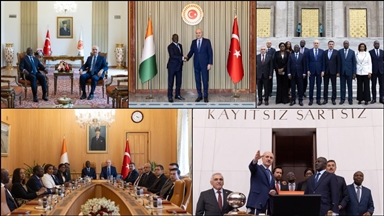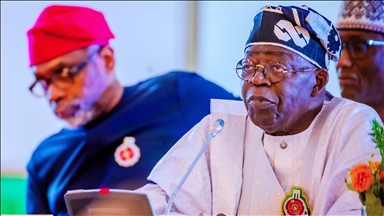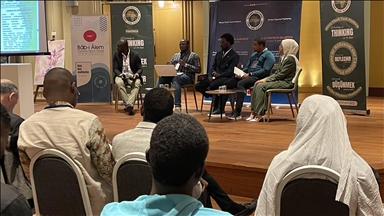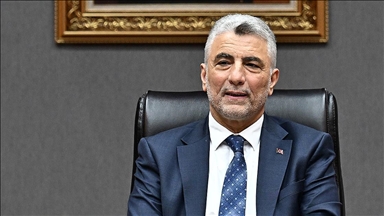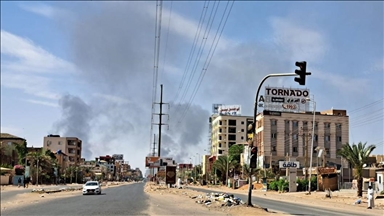ANALYSIS - What distinguishes Turkiye from other actors in Africa?
Turkiye aims to establish ties with African peoples directly, based on mutual respect, in interest of African peoples
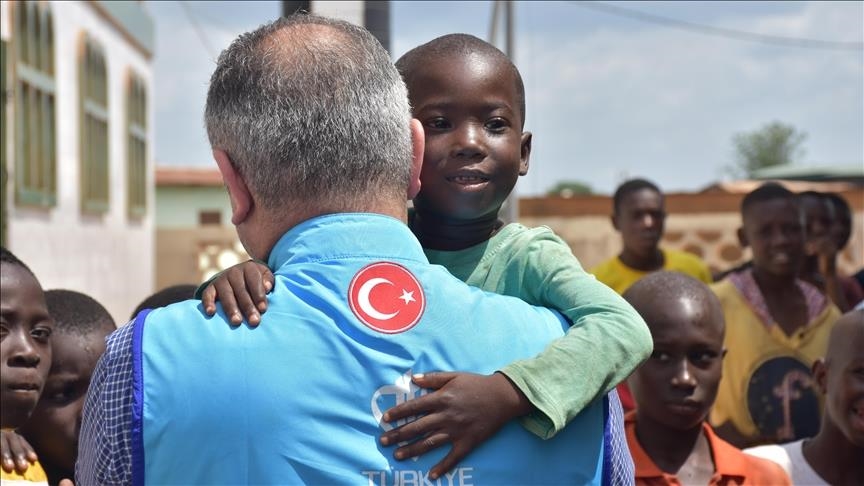
ISTANBUL
For centuries, the African continent has been a hub of attraction for the powers that be in world politics and trade. The intercontinental slave trade played an important role in the development of this attention, as well as the continent’s underground and above-ground treasures. The interest of non-continental actors in Africa continues today, unilaterally and profit-oriented. For this reason, the African continent, known for centuries through the lens of colonialism, has stayed in the news through military coups, security woes, and humanitarian crises.
Growing interest in Africa
Relations between non-continental actors and African countries have varied throughout history. Undoubtedly, these variations were directly or indirectly affected by the conditions of their times. For example, since the 15th century, powers such as Portugal, Spain, and the Netherlands saw Africa as human trafficking centered, while from the 19th century, the interest of states such as the UK in the continent was shaped by its rising need for raw materials with the Industrial Revolution. The African continent was directly affected by the two world wars and the Cold War and continues to be the focus of interest of new actors today. Undoubtedly, these include China and India, which are trying to penetrate the continent economically, and Russia, which wants to boost its military influence.
Turkiye's difference from other actors
Turkiye, which has deep historical ties with the African continent, continues its contacts with the people of the continent in various areas today, as it did in the past. Turkiye has historical ties with many parts of Africa and is trying to revive these ties, unlike other actors such as Spain, the UK, China, and Russia. Turkiye aims to establish relations with African peoples directly, based on mutual respect and in the interest of the African peoples.
Humanitarian aid and educational activities are carried out across the continent by institutions such as the Turkish Cooperation and Coordination Agency (TIKA), Turkiye Diyanet Foundation (TDV), Yunus Emre Institute, Maarif Foundation, Turkish Red Crescent, Disaster and Emergency Management Authority (AFAD), and Turkish NGOs are the biggest proof that Turkiye is different from other actors. Turkiye's relations with African countries are people-oriented and more fair, comprehensive, and multidimensional compared to other actors, which was clearly expressed by African leaders who attended the third Turkiye-Africa Summit held in Istanbul last year.
While the Maarif Foundation strives to encourage African youth to become self-sufficient through educational activities, the Yunus Emre Institute aims to increase cultural interaction. The Turkish Red Crescent and Disaster and Emergency Management Authority support people in need in many parts of the continent in areas such as health, shelter, and food. NGO volunteers wave the Turkish flag with their work for the benefit of the peoples of the region.
While embassies develop high-level diplomatic ties, the Maarif Foundation, Yunus Emre Institute, Turkish Cooperation and Coordination Agency, Turkish Red Crescent, Anadolu Agency, and Turkish Airlines (THY) have an important place in the development of mid-level relations in Turkiye's relations with African countries, with the advantages brought by their wide range of work.
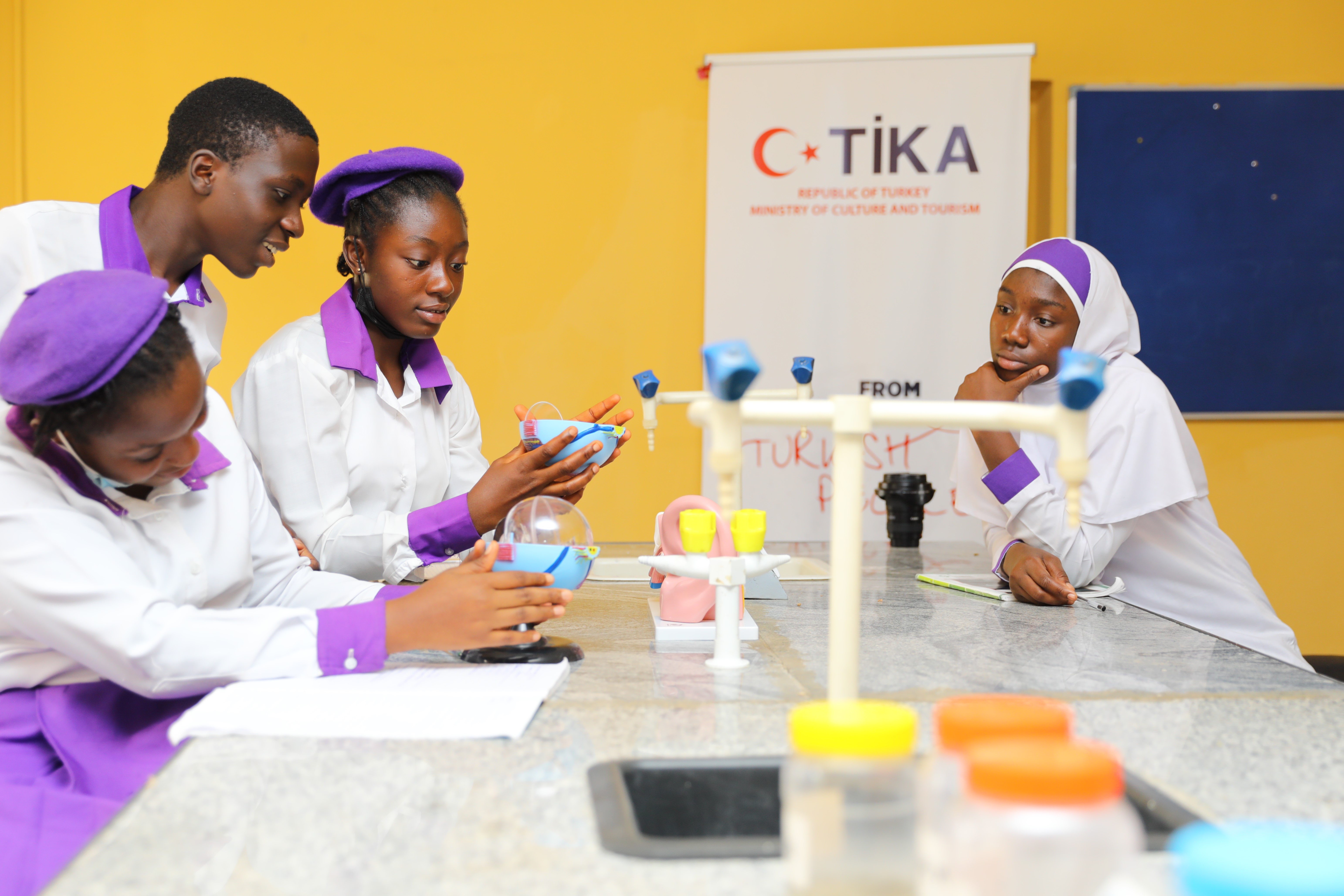
Helping hand to Africa: TIKA
The Turkish Cooperation and Coordination Agency, the state aid agency, which has opened offices in Africa from Sudan to South Africa, from Senegal to Ethiopia, is one of the most influential and important institutions in Turkiye's foreign policy. It carries out projects and activities on education, health, production, agriculture and livestock, social and administrative infrastructure, employment, and access to clean water. It contributes to cultural life and humanitarian aid to boost Turkiye's ties with Africa.
TIKA also conducts public diplomacy on behalf of Turkiye to contribute to the prosperity of African peoples, who have been adversely affected by many areas of the global system.
With offices operating in more than 60 countries, TIKA has implemented more than 30,000 projects and activities in more than 170 countries since its establishment in 1992 as a result of changing international conditions. In its relations with African countries, Turkiye aims to build a long-term, common future based on the principle of equal partnership, as pointed out by the African leaders who attended the third Turkiye-Africa Summit. As a result of this, TIKA, which opened its first office in Africa in Ethiopia in 2005, has increased the number of offices across the continent to 22, including Egypt.
Thousands of TIKA projects
As Turkiye's "hand" in the African continent, TIKA prioritizes boosting the welfare of countries by contributing to the regional peace and stability, which are the priority issues for the continent. It also supports sustainable development by improving production sectors. For this purpose, the opening of the Mogadishu Turkiye Recep Tayyip Erdogan Training and Research Hospital in Somalia, the restoration of the Ottoman-era Keciova Mosque in Algeria and the Nur'ul Hamidiye Mosque in South Africa, and training on modern agricultural techniques and greenhouse cultivation to African farmers are some examples of its efforts. Today, TIKA has accomplished nearly 7,000 projects that will benefit the people of the region.
Celebrating its 30th anniversary this year, TIKA's steps across Africa are cited as the biggest proof that Turkiye does not act with a colonial mentality in its relations with continental countries and peoples, as observed in some other non-continental actors. Ties forged through these steps show that Turkiye's view of Africa is based on demands for a people-oriented and just order, as President Recep Tayyip Erdogan has stated many times. This reveals that TIKA is an institution of great importance, both theoretically and practically, in Turkiye's relations with African countries.
Cultural heritage protected together
The work carried out by TIKA in Africa has an important place in the deepening of relations with the continent, as well as in the preservation of the history and culture and civilizations of both Turkiye and Africa. While TIKA unearths many Ottoman-era historical artifacts in various parts of the continent, it also contributes to the preservation of Africa’s cultural and historical heritage such as the King Negus Tomb in Ethiopia.
The relations and contacts established by TIKA across the continent not only provide the opportunity to analyze Africa better by obtaining accurate and reliable information from the field but also enable African intellectuals, opinion leaders, journalists, businesspeople, and political leaders to get to know Turkiye better.
TIKA establishes direct contact with people of continent
Turkiye's emphasis on the concepts of equality and justice in its relations with Africa, and its efforts for the development and self-sufficiency of the people of the region, contribute to the formation of a positive perspective on the image of Turkiye throughout the continent. This situation, which also increases expectations from Turkiye, also makes it necessary to be more careful in actions taken and rhetoric used taken in different regions of Africa.
As a result, TIKA, which carries out activities such as agricultural education and support, construction of hospitals and schools, vocational training, and protection of cultural and historical heritage throughout Africa, not only establishes direct contact with the people of the continent but also contributes significantly to raising awareness worldwide of the importance and value of Africa. Contacting every sector of society, from farmers to a university academics, TIKA operates as an important public diplomacy tool for Turkiye.
**Opinions expressed in this article are the author’s own and do not necessarily reflect the editorial policy of Anadolu Agency.
Anadolu Agency website contains only a portion of the news stories offered to subscribers in the AA News Broadcasting System (HAS), and in summarized form. Please contact us for subscription options.


